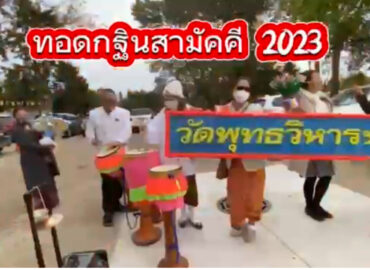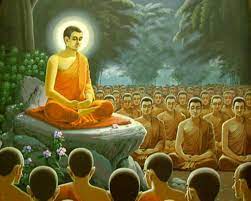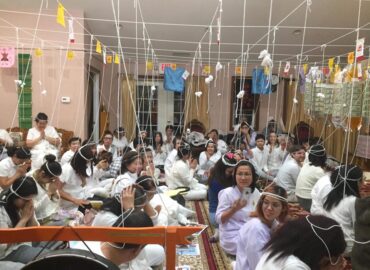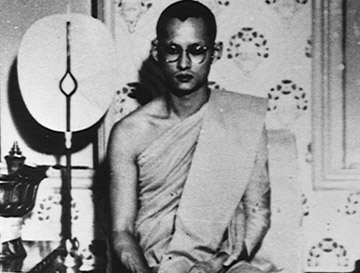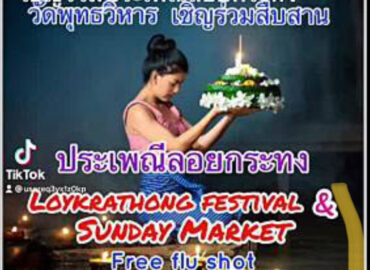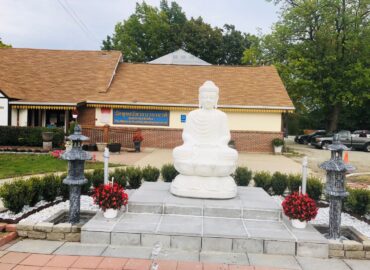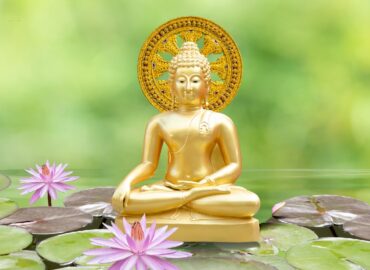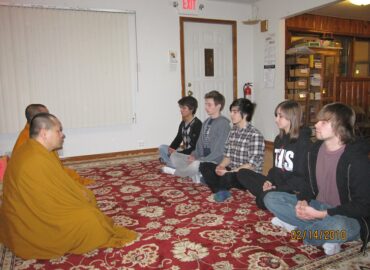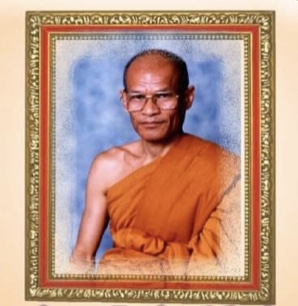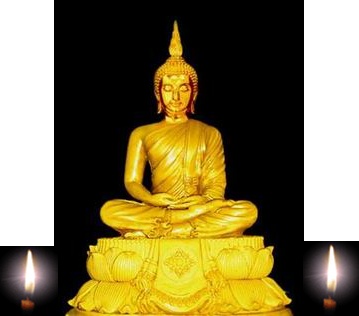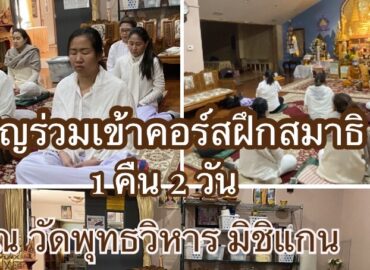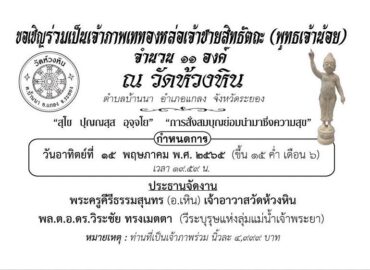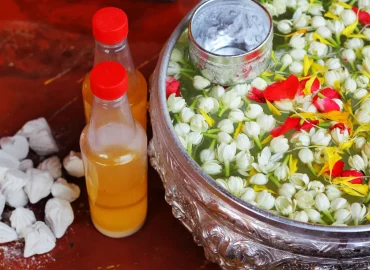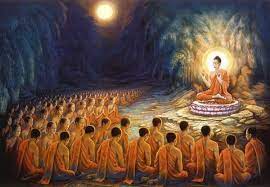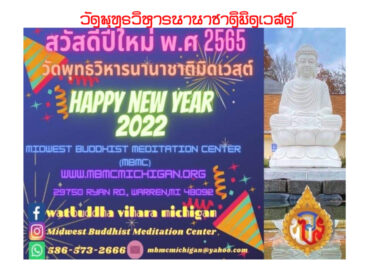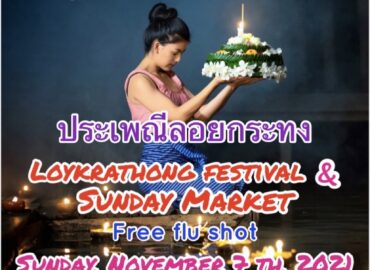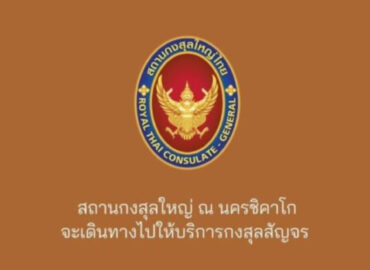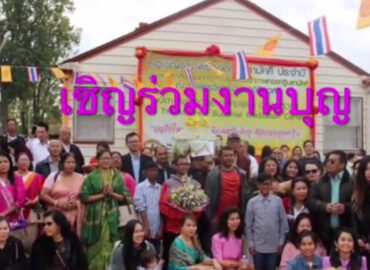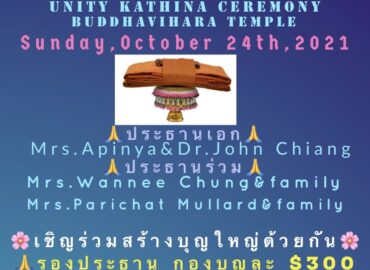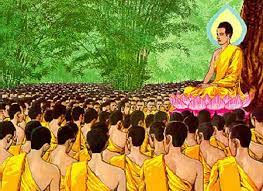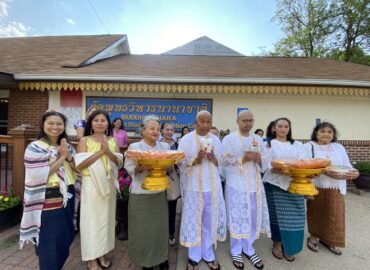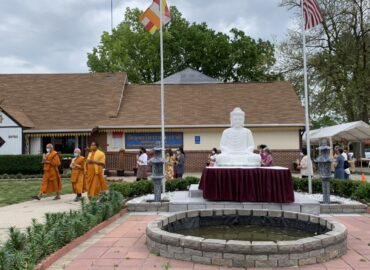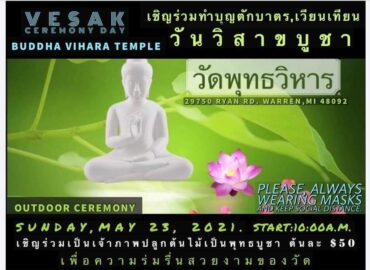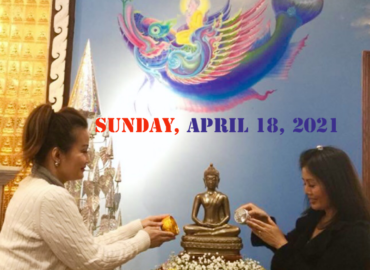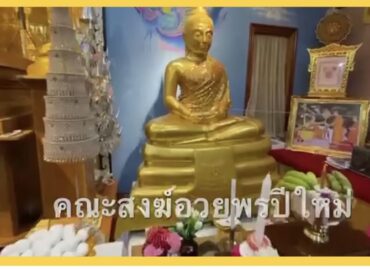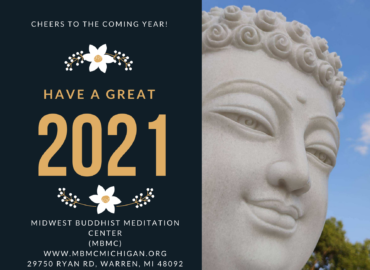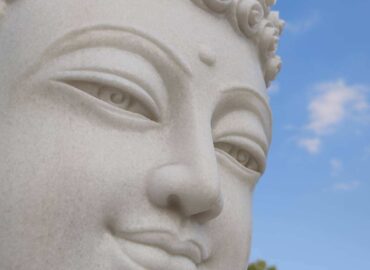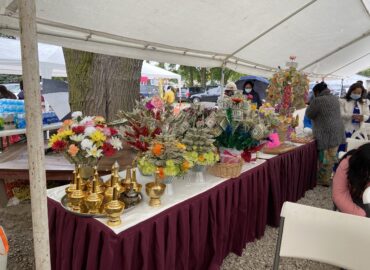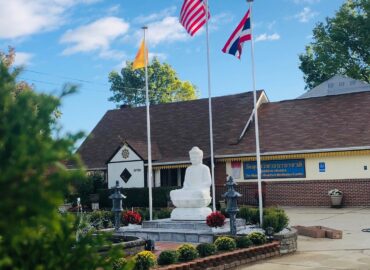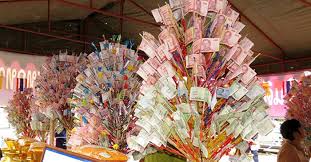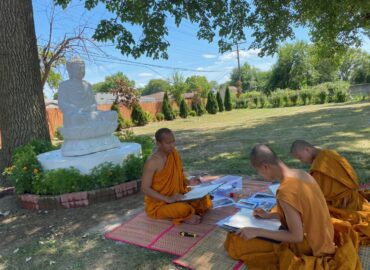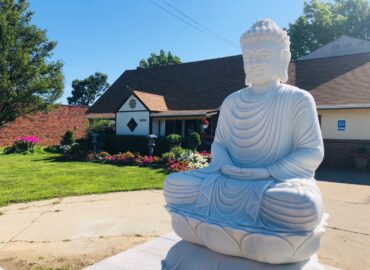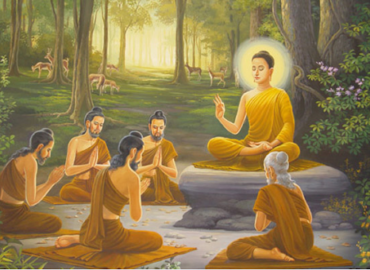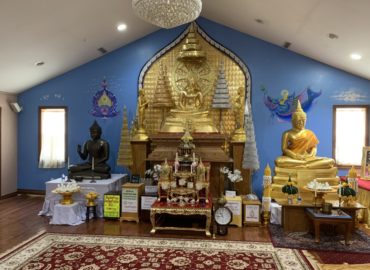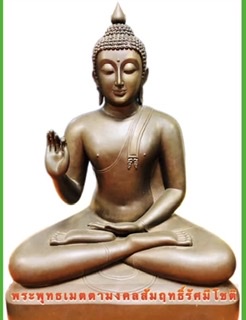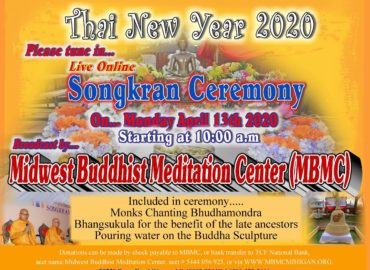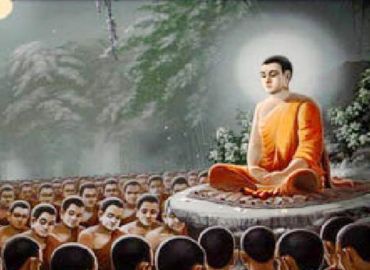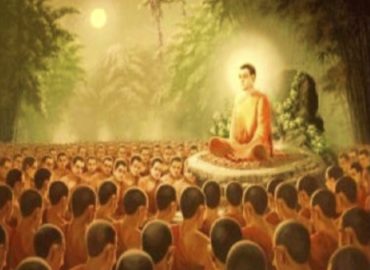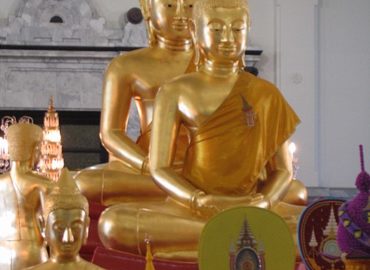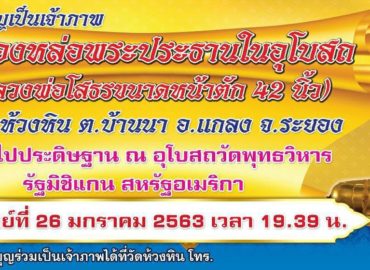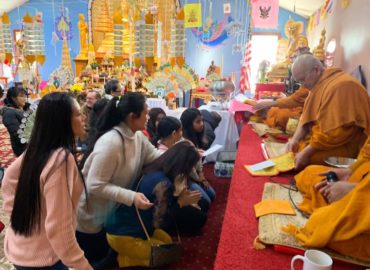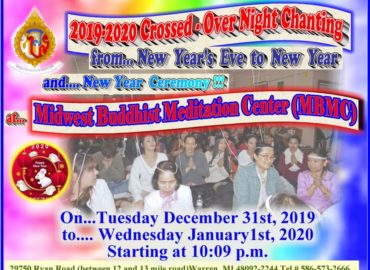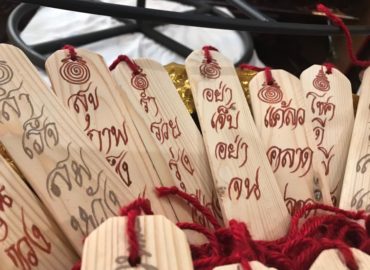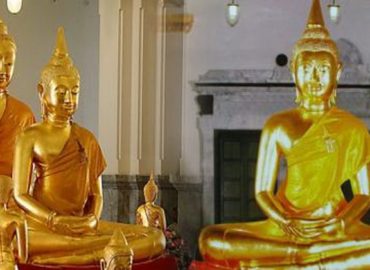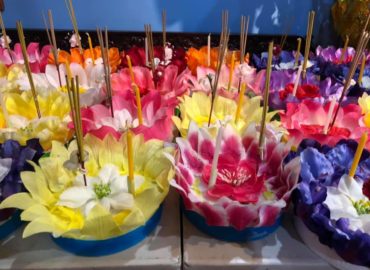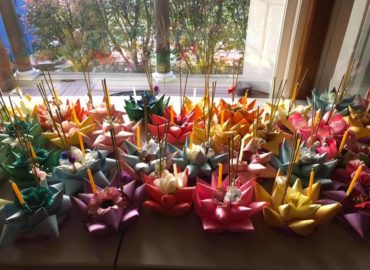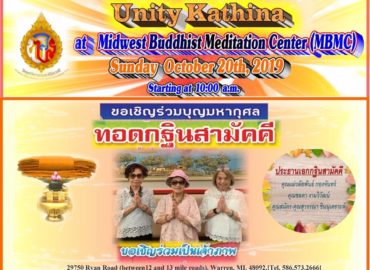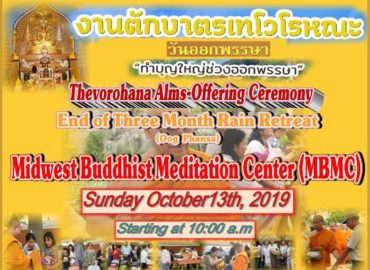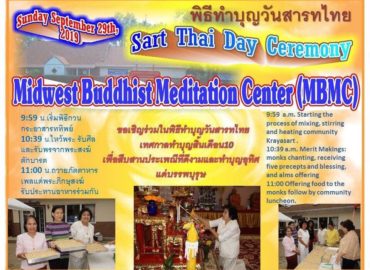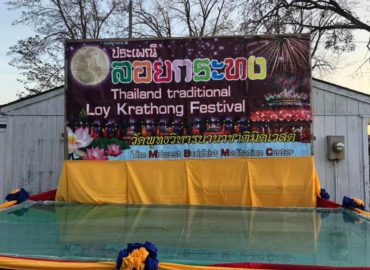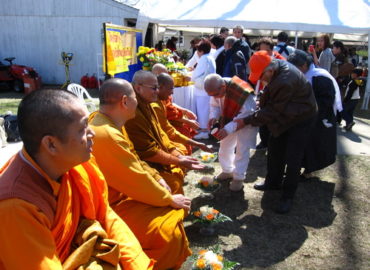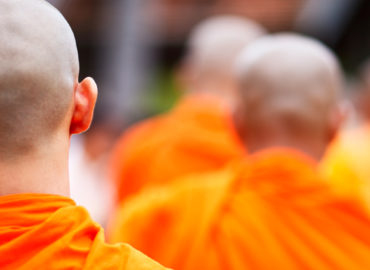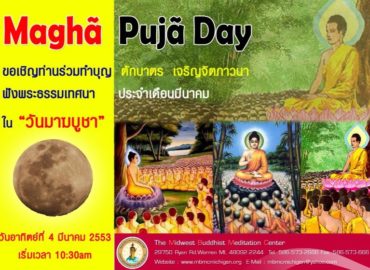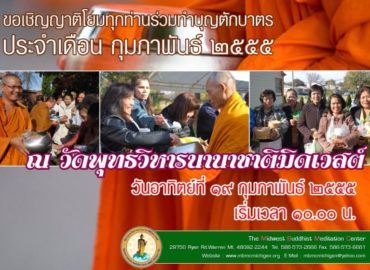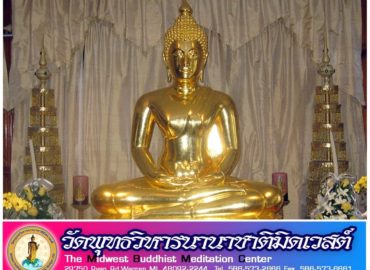Thai and Eastern Traditional New Year
Objectives:
1. To educate the readers about Thai Buddhist Tradition
2. To educate the readers about Thai Buddhist culture
3. To encourage the Thai and Asian students to preserve Buddhist and eastern culture
4. To provide the young readers about activities performed on Songkrant Day
5. To show the young students Five Precepts needed to be observed in the modern world
The Songkrant Festival
To day is April 15th. It is summer in Thailand and other Asian countries. It is the spring season in the United States of America. Today is Sunday April 15. 2007. We celebrate New Year. But actually Asian New Year is on April 13, but we move to today April 15 because Saturday and Sunday are convenient for our people her in the North America.
Today, Somchai said, I got up early in the morning my parents and I went to Buddha Vihãra of Warren with my parents. I saw many monks standing in line outside the temple. They are holding black and silver bowls. They are standing and walking in a line behind the building. There are many people join and stand in line along the tables, my parents and other people are standing in front of the monks and putting rice fruits in their bowls.
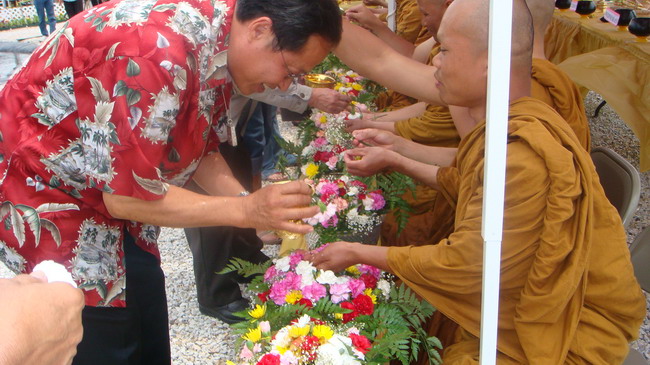
During that time Jenny and Vichai are talking.
Jennifer: Do you see many monks over there?
Vichai: Yes, I do.
Jennifer: Are there many people, too?
Vichai: Yes, there are.
Jennifer: What are they doing?
Vichai: They are giving food to the monks.
Jennifer: Are you going to give food to the monks too?
Vichai: No, but my parents and my sisters are giving food in their bowls. I am watching and observing them.
Jennifer: Do these people give food to the monks every day?
Vichai: Some of them do, but many don't.
Jennifer: Why do so many people come to the temple and give food to the Monks today?
Vichai: Oh Jennifer! Today is April 13th, Songkrant Day. It is the New Year Day in Thailand, Lao, Cambodia, and Myanmar (Burma). In these countries, people go to the Temples and give food to the monks, novices, and nuns. They also give food to handicapped people too.
Jennifer: What does everyone do after lunch?
Vichai: They sprinkle drops of perfumed water on the statue of the Buddha. Then they pour other drops on the monks and novices including their Grand parents too out of respect. The monks bless them in return.
Jennifer: What do children do for their parents and elders?
Vichai: They give small presents to them and sprinkle their hands with the drops of perfume water as a symbol of their love, gratitude, and respect. Their parents and elders will bless them in return too.
Jennifer: What did everyone do the day before Songkrant Day?
Vichai: They clean up their houses and washed Their clothes. They prepared food to offer to the monks like yesterday and today morning.
Jennifer: What do they do in Thailand on Songkrant Day?
Vichai: They do many of the same things as we do here, in Detroit metropolitan, Michigan. People in all parts of Thailand, especially in the country areas, north and northeastern, clean their houses and the village roads. They enjoy sprinkling perfume water on the monks, novices and each other for three days or even longer. I herd from the Monks that in Burma also people do the same thing.
Jennifer: Is school closed on Songkrant Day in Thailand too?
Vichai: Oh, Yes, it is, why not. Songkrant Day is a public holiday in Thailand. I learn from my grant Pa, in Lao too, because it is traditional New Year's Day Over there.
Jennifer: Well, then Happy New Year to you, Vichai!
Vichai: Happy New Year to you, too!
Jennifer: After giving food to the monks, what do the people do in their temples in United States of America?
Vichai: First they have lunch together, then they observe the Five Precepts and listen to Dhamma talk. They also donate money to the temple to pay of our additional property. I heard from the head monk that we bought anew additional house just second door from our temple and we are going to buy one more just next to our temple here. That is why we have to donate our money to the temple to be able to pay mortgage every month to have sufficient accommodation and proper parking lot.
Jennifer: Oh! I am so happy to hear that. Vichai, how much we have to pay in every month to help the temple?
Vichai: Not much as your choices.
Jenny: Did you say Five Precepts? And what is Five Precepts?
Vichai: Five Precepts are the moral principles for Buddhists to practice in daily life, Vichai continues. Do you want to know about these too?
Vichai asks. Yes. Thanks,
Jennifer replies.
Vichai, “said, Five precepts consists of five moral codes for human beings to observe”.
They are as follow;
1. Not to kill all living beings.
2. Not to take what is given.
3. Not to commit adultery and sexual misconduct.
4. Not to lie including false speech.
5. Not to take intoxicant drinks and harmful drugs. These are the Five Precepts. Do you understand?
Jennifer: Yes, I do. Thank. What is a Dhamma talk? And who gives Dhamma talks?
Vichai: Dhamma talk is talking or sermon and discussion about the teachings of the Buddha. Dhamma means the teaching of the Buddha. Some people say law of nature. Almost the Monk will give talk on gratitude, because the Songkrant Day was named as Gratitude Day. The monks give Dhamma talk to lay people, so that the Buddha’s teaching can be presented in those people who lived Dhamma. Like my friends in my college said that “God helps those who help themselves”. We will ask our monks teachers at Buddha Vihãra about this next time.
Jennifer: I am curious. Why we have to offer food to the monks, I did not understand?
Vichai: Because they devote their lives and their time to serve the people with out thinking of return and rewards. Now, people go in side, we have to go inside too.
Jennifer: Thank you very much for your time telling me all about these. I learn a lot today.
Vichai: Most well come.
What we expected the consequences for our kids
1. The learners have knowledge about Songkrant Festival Day.
2. The learners know and understand Asian and Buddhist traditions.
3. The learners develop the idea of what should be done to preserve Buddhist culture.
4. The learners know about activities performed on Songkrant Festival Day.
5. The learners know Five Precepts and how to practice.
Being Grateful to our parents and our ancestors
is the symbol of the noble ones
“The Buddha’s Words”




